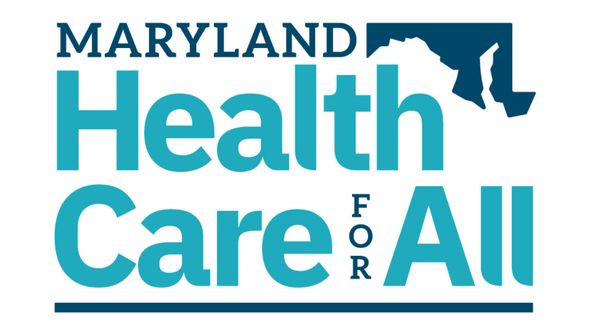The Baltimore Sun
August 22, 2018
By: Michael Dresser
State officials plan to announce Wednesday that the Trump administration has approved a federal waiver that is expected to stave off increases in health insurance costs for more than 200,000 Marylanders.
The two main sponsors of the legislation designed to control costs under Obamacareconfirmed that the federal government has given Maryland the green light for its reinsurance program.
Amelia Chasse, a spokesman for Gov. Larry Hogan, confirmed plans for a Wednesday announcement but would not provide details. House Speaker Michael E. Busch and SenatePresident Thomas V. Mike Miller are expected to speak at the event.
Del. Joseline Pena-Melnyk and Sen. Thomas M. “Mac” Middleton, who sponsored the bills to fill the gap left by Congress’ elimination of a key source of funds for Obamacare, said they have been told the waiver has been approved.
“I’m very pleased that the work of the General Assembly is going to pay off,” said Pena-Melnyk, a Prince George’s County Democrat. “Honest to God, I think it’s fantastic.”
Passage of the bills creating the reinsurance plan and seeking the waiver were hailed as one of the chief bipartisan accomplishments of Maryland’s 2018 General Assembly session.
The plan imposes a one-year state tax on insurance companies and uses that revenue to subsidize the most expensive health insurance claims from policies sold through Maryland’s health exchange. By lowering the risk to insurers selling on the individual market, state leaders hope to lower premiums enough to make them affordable next year.
If lawmakers had done nothing, officials said, the individual market had the potential to collapse weeks before the Nov. 6 election. Hogan, a Republican, is running for reelection against Democrat Ben Jealous, the former president of the NAACP.
The Republican governor worked with Democratic leaders to cushion the blow to ratepayers in the individual health insurance market after Congress eliminated the federal mandate that had required taxpayers to insure themselves or pay a penalty.
After the bills passed with bipartisan support, Hogan signed them.
“We faced this crisis together,” the governor said at the signing ceremony in April.
According to the Department of Legislative Services, about 250,000 people are affected by rates in the individual market.
Middleton, a Charles County Democrat, said the elimination of the mandate contributed to a roughly 50 percent increase in premiums last year and threatened to force another 40 percent increase this year — a rise that might have forced CareFirst BlueCross BlueShield out of the individual insurance market.
“One of the problems with the individual exchange is fewer and fewer people [in the insurance pool] and those who stay are high risk,” said Middleton, the longtime chairman of the Senate Finance Committee.
A spokeswoman for the Centers for Medicare & Medicaid Services did not return messages seeking comment. Middleton said he believes the Trump administration looks more favorably on plans crafted by individual states rather than federal programs such as Obamacare.
Pena-Melnyk said the waiver will allow the state to create a reinsurance program to shore up a market largely made up of self-employed people and proprietors of “mom-and-pop” businesses too small to buy health insurance on the group market.
“You’re talking about over $800 million to create a reinsurance program to help people in Maryland,” she said. She warned a longer-term solution will be needed in four to five years.
“This will buy us time,” she said.
Pena-Melnyk said about $380 million will come through an assessment on insurance carriers approved by the legislature with the agreement of the companies. She said the rest will come from federal matching funds.
Premiums on individual insurance policies, which serve people who aren’t covered through a job or family member and who earn too much to qualify for Medicaid, have shot up in recent years.
The viability of the individual market has been threatened because insurers underestimated the costs of claims and because not enough young, healthy people bought policies to help subsidize the costs of older and less healthy people.
Repeated attempts by President Donald J. Trump and congressional Republicans to dismantle Obamacare, along with the repeal of the individual mandate, have increased uncertainty for insurance companies and prompted them to raise rates.
Middleton said he hopes that by shoring up the individual market, it could eventually be combined with the more stable small group market. But that would depend on reducing the gap between premiums for the two types of plans.
The legislation passed this spring also set up a commission to study the long-term stability of the state’s insurance market and proposals to require all Maryland residents to buy health insurance as a way to replace the federal individual mandate.
Vincent DeMarco, president of the Maryland Health Care for All Coalition, said he is “thrilled” that the waiver has been approved. He urged the General Assembly to adopt a state mandate plan, which failed after coming close to passage this year.
“The reinsurance is great but we need to do [the mandate] also,” DeMarco said.
DeMarco said that under the state mandate plan, taxpayers who don’t provide for their own health insurance would face a $700 tax penalty. However, he said, the state would help them use that payment toward getting covered, and the money would go to the state treasury only if the taxpayer refused the offer of insurance.
The plan would bring an estimated 60,000 to100,000 uninsured Maryland residents under coverage.
Middleton said the state mandate proposal was gaining traction last spring before concerns rose about its administrative costs. But he’s optimistic about its chances next year.
“It’s got wings,” he said.
But Middleton, a leading force in health care legislation for almost two decades, won’t be there to help push it through. He was defeated for re-election in June’s Democratic primary.
“There’s going to be some real heavy lifting,” Middleton said.
Baltimore Sun reporters Luke Broadwater and Andrea K. McDaniels contributed to this article.



